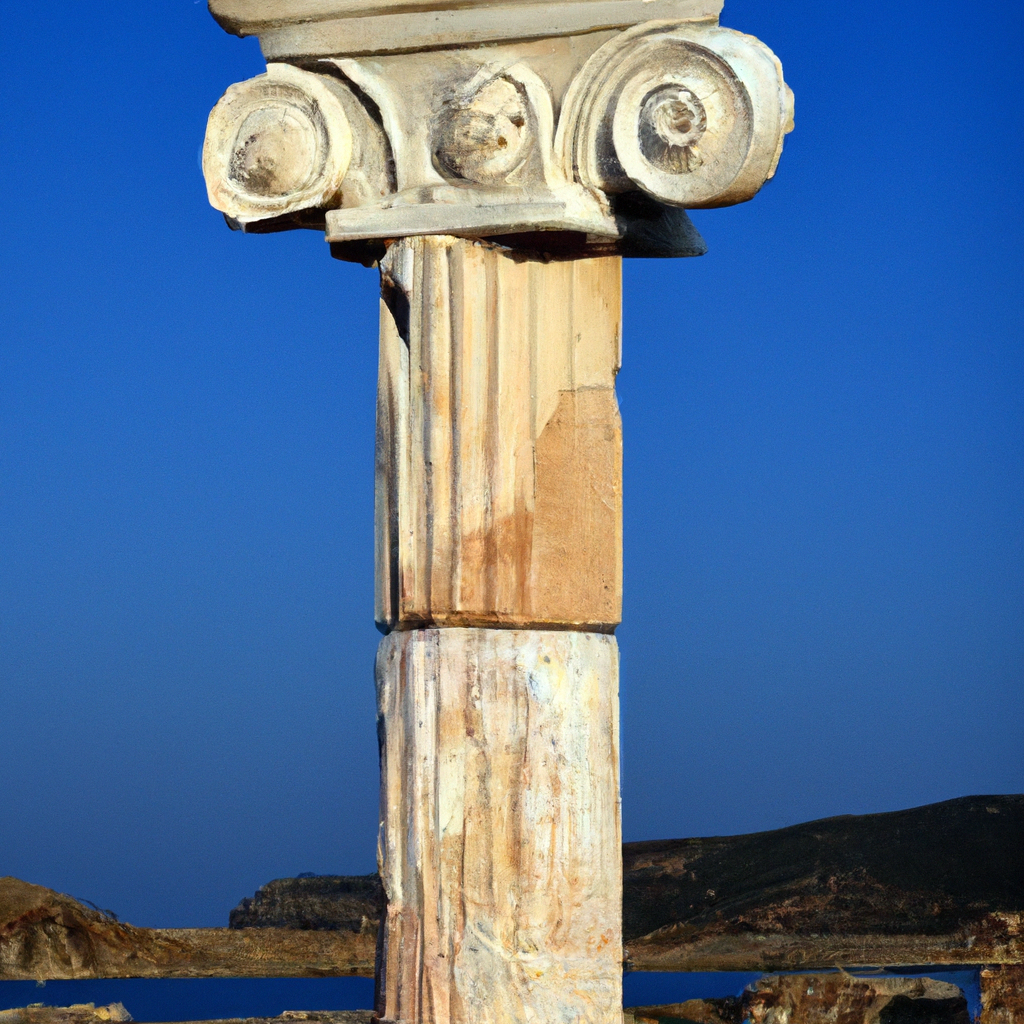Get ready to embark on a journey filled with ancient tales and mythical wonders as we unveil the captivating secrets of the Delos Greek islands. Nestled in the heart of the Aegean Sea, Delos holds immense mythological significance, drawing in curious travelers from all corners of the world. Here, you will discover the birthplace of Apollo and Artemis, immerse yourself in the legends of Zeus and Poseidon, and unravel the hidden stories behind the ancient ruins that adorn this sacred island. Join us as we delve into the rich tapestry of Delos, where history and mythology intertwine to create an enchanting experience like no other.
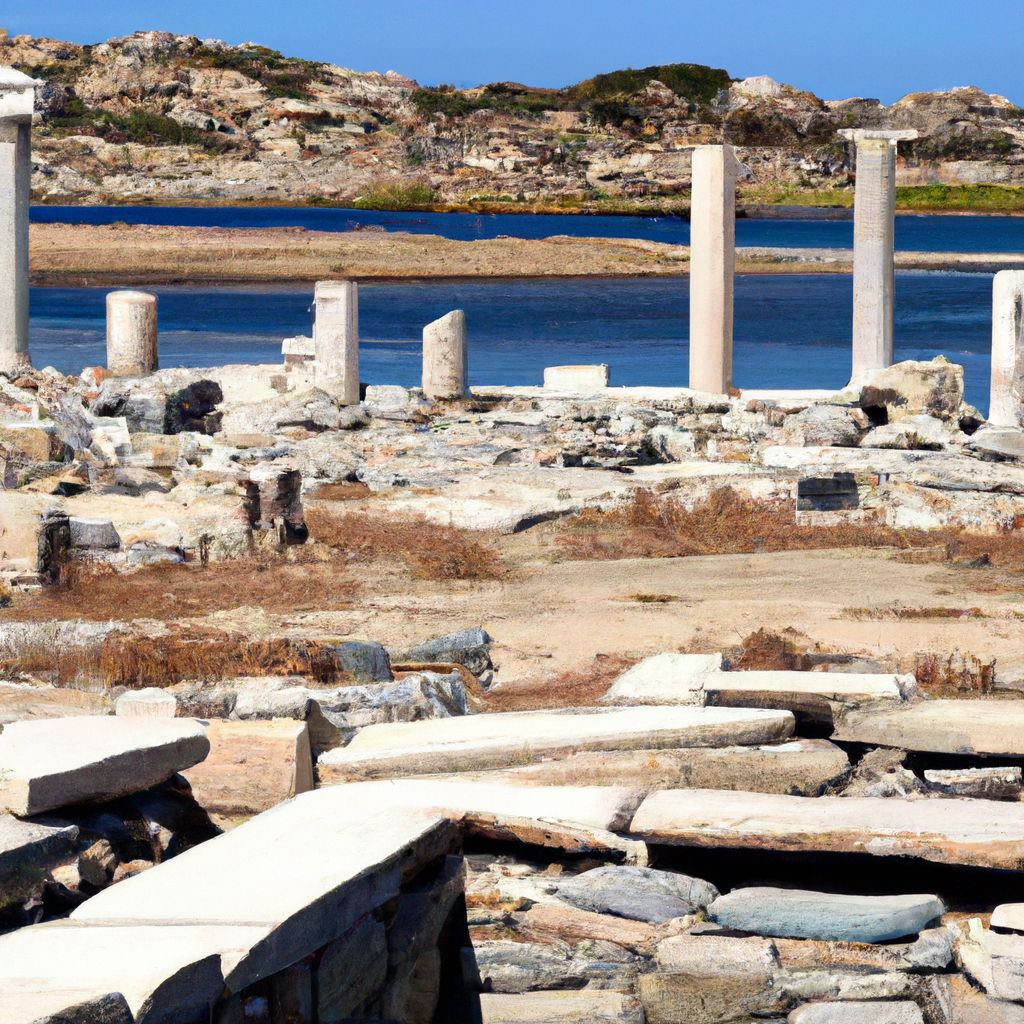
The Birthplace of Apollo
Apollo and his Twin Sister
Delos, one of the most revered Greek islands, holds rich mythological significance as the birthplace of Apollo and his twin sister, Artemis. According to ancient Greek mythology, their mother, Leto, sought refuge on the island when she was pregnant with them. Delos was the only land willing to provide sanctuary for the pregnant goddess, as other places were fearful of the wrath of Hera, Zeus’ jealous wife. It is said that when Apollo and Artemis were born on Delos, the island was bathed in radiant light, and it marked the beginning of its sanctity.
The Oracle of Delos
The island of Delos, known for its mystical aura, was home to the legendary Oracle of Delos. This oracle, dedicated to the god Apollo, played a crucial role in ancient Greek society. The Oracle was believed to possess the gift of prophecy and was consulted by individuals, city-states, and even mighty kings seeking guidance and foresight. It was said that the Oracle spoke directly to Apollo, allowing mortals to receive divine insight and wisdom. The Oracle of Delos was highly revered, and pilgrims from far and wide made their journey to seek counsel and divine blessings.
The Sanctuary of Artemis
The Goddess of the Hunt
Artemis, the twin sister of Apollo, held significant influence on the island of Delos. Known as the goddess of the hunt, she embodied the spirit of the wilderness and was revered for her hunting prowess, protector of animals, and her connection to nature. The sanctuary of Artemis on Delos was a sacred space dedicated to her worship, drawing in devotees who sought her blessings and protection. The islanders understood the importance of maintaining a harmonious relationship with nature, guided by Artemis’ teachings and the values she embodied.
The Statue of Artemis
Within the sanctuary of Artemis stood a magnificent statue of the goddess herself. Crafted by skilled artisans, the statue depicted Artemis in her regal form, radiating power and grace. It stood as a testament to the islanders’ devotion to the goddess and served as a focal point for prayer and offerings. The statue was a reminder of the island’s connection to the divine and symbolized the islanders’ belief in the protection and guidance provided by Artemis.
The Legend of Leto
The Forbidden Land
Leto, the mother of Apollo and Artemis, found herself in a dire predicament during her pregnancy. Hera, consumed by jealousy, had forbidden any place on land to provide her sanctuary. Desperate and in search of refuge, Leto eventually found solace on the island of Delos, which willingly opened its shores to her. The islanders defied Hera’s command, leading to the intense bond between Delos and the divine twins. The defiance of the islanders showcased their unwavering faith in the gods and their commitment to protecting those in need.
The Birth of Apollo and Artemis
Delos became a testament to the miraculous birth of Apollo and Artemis. As Leto brought forth her divine offspring, the island was bathed in a radiant light, illuminating the land with celestial joy. This moment marked the beginning of Delos’ sacredness and solidified its bond with the twin deities. Apollo, as the sun god, carried the light of Delos with him as he traversed the mortal realm, spreading warmth, illumination, and inspiration.
The Worship of Dionysus
The God of Wine and Festivity
Dionysus, the god of wine and festivity, also held a significant place in the mythological tapestry of Delos. Known for his association with pleasure, ecstasy, and liberation, Dionysus was worshiped by the islanders during various festivals and celebrations. The worship of Dionysus brought joy, merriment, and a sense of unity to the island, allowing the inhabitants to momentarily escape their daily struggles and embrace the revelry associated with the god.
The Dionysian Mysteries
The island of Delos was a hub of Dionysian mysteries, where initiates partook in secretive rituals and ceremonies dedicated to the god. These mysteries were meant to bring individuals closer to Dionysus and offer them a glimpse into the divine realms. Through ecstatic practices, music, dance, and theater, the initiates sought to experience a heightened state of consciousness and forge a connection with the divine. The Dionysian mysteries were highly revered, attracting seekers of spiritual enlightenment from far and wide.
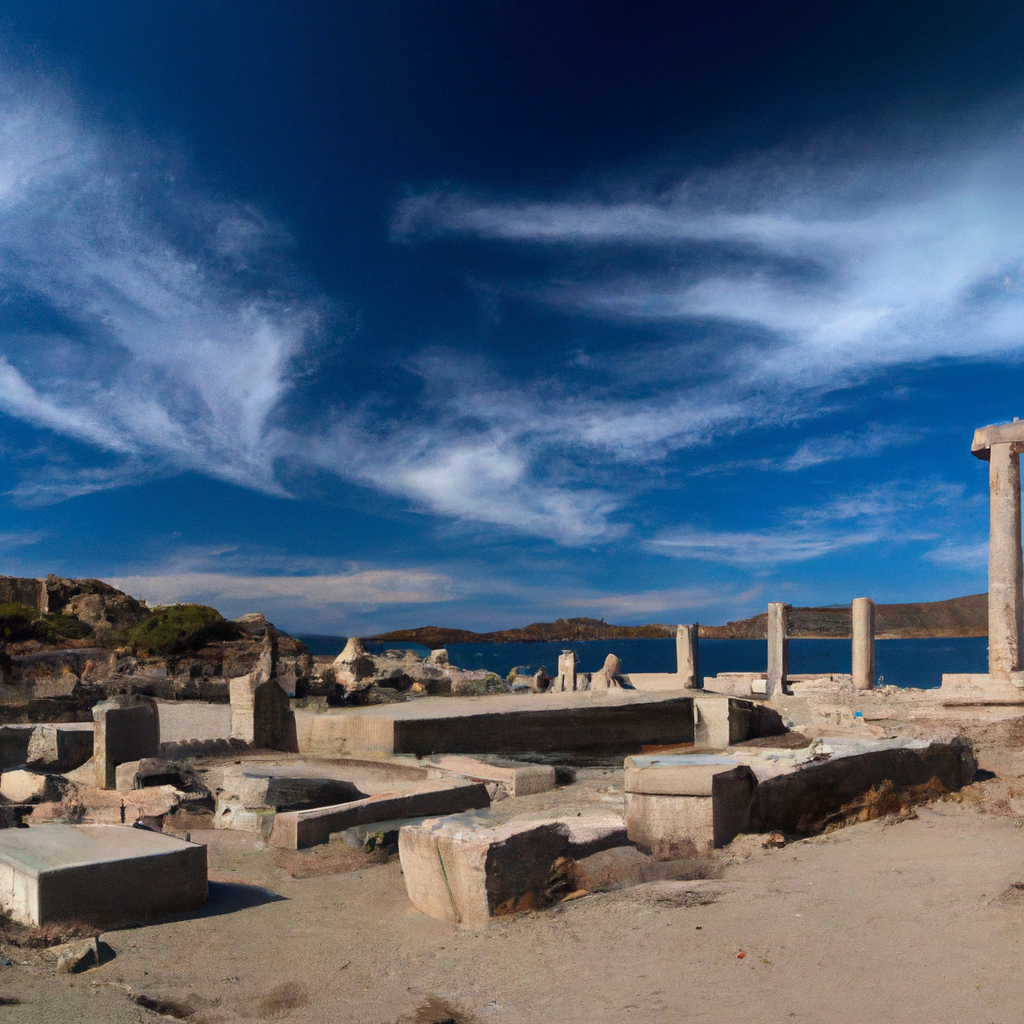
The Battle of Giants
The Gigantomachy
Delos also played a pivotal role in the epic battle between the gods and Giants known as the Gigantomachy. According to mythology, the Giants, monstrous beings born of Gaia, the Earth, rose up against the gods, seeking to overthrow their divine rule. In this fierce conflict, the gods, including Apollo and Artemis, fought alongside other legendary heroes to defend their dominion. Delos became a battlefield, witnessing the clash between the forces of divine order and chaos. The victory of the gods solidified Delos’ position as a sacred realm protected by the Olympians.
The Heroes Involved
The battle of Giants on Delos saw the participation of several heroic figures from Greek mythology. Hercules, the mighty demigod, fought valiantly alongside the gods, showcasing his immense strength and courage. These heroic figures displayed their unwavering loyalty to the gods and fought with great zeal, ensuring the protection of Delos and the preservation of divine order. Their deeds and sacrifices in the battle of Giants became legendary, forever etching their names in the annals of Greek mythology.
The Twelve Labors of Hercules
The Divine Hero
Hercules, a prominent figure in Greek mythology, embarked on twelve challenging labors assigned to him as penance for an act of madness. One of these labors took place on the island of Delos. The task demanded Hercules to obtain the Golden Apples of the Hesperides, which were believed to be located within a garden on Delos. The divine hero ventured to the island, enduring various trials and overcoming obstacles in his quest to complete this labor. This presented Delos as a place of pilgrimage and a testament to the divine heroism of Hercules.
The Labors on Delos
Upon reaching Delos, Hercules encountered a series of challenges designed to test his strength and determination. From monstrous creatures to treacherous landscapes, the island pushed Hercules to his limits. However, with his unwavering resolve and the aid of the gods, Hercules successfully completed this labor, acquiring the coveted Golden Apples. The island became a symbol of resilience and triumph, forever associated with the Herculean spirit of overcoming adversity.
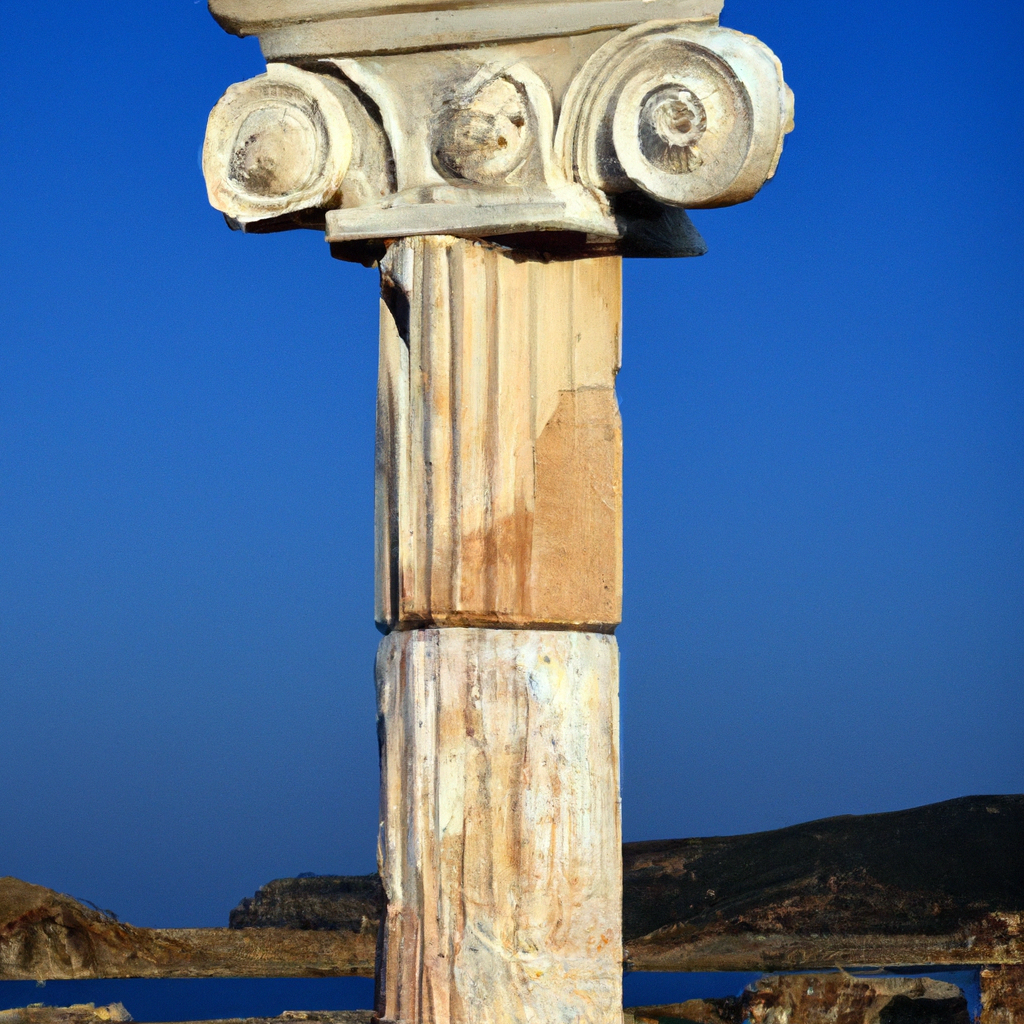
The Tragedy of Phoebus and Coronis
The Forbidden Love
Delos was also the setting for a tragic love story involving Apollo and Coronis. Coronis, a mortal princess, captured the heart of the sun god, Phoebus Apollo. However, their love was not meant to be, as Coronis fell in love with another, betraying Apollo’s trust. This forbidden love brought forth great sorrow to Apollo, lamenting the loss of his beloved.
The Heartbreaking Outcome
In his grief, Apollo struck Coronis with an arrow, leading to her untimely death. However, before her passing, Coronis bore Apollo a son named Asclepius, who would go on to become the god of medicine. This tragic event forever marked Delos as a place of intense emotion and heartbreak. It serves as a reminder of the complexities of love and the consequences that can arise from forbidden affections.
The Delian League
The Formation of the League
Delos played a significant role in the establishment of the Delian League, an alliance formed amongst several Greek city-states in the 5th century BC. Initially, the alliance sought to unite against the Persian Empire, known for its expansionist aims. Delos became the central meeting place for these city-states, providing a platform for political discussions, decision-making, and collective defense strategies. The formation of the Delian League marked an important chapter in Delos’ history, cementing its position as a political center of ancient Greece.
Delos as a Political Center
As the chosen headquarters of the Delian League, Delos became a bustling hub of diplomatic activity and political discourse. Representatives from various city-states gathered on the island to discuss matters of governance, security, and shared interests. Delos, once renowned for its mythological significance, took on a new role as a center of power and influence within the Greek world. The island witnessed the forging of alliances, the shaping of policies, and the pursuit of collective goals, solidifying its status as a site of historical and political importance.
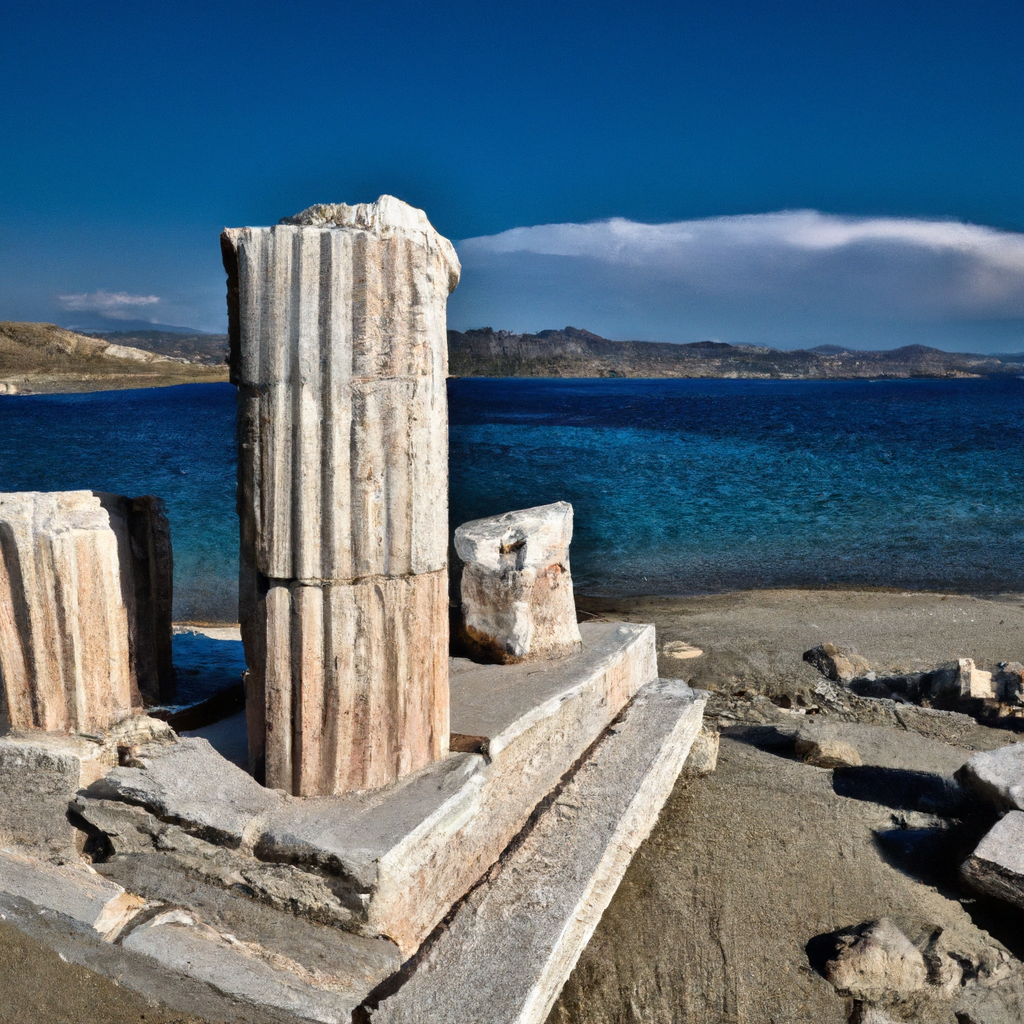
The Delian Dolphins
The Symbol of Protection
Delos is known for its association with dolphins, which act as a protective symbol for the island. Dolphins are often depicted alongside sculptures and artworks, representing the guardianship bestowed upon Delos. Their presence signifies the island’s connection to the sea and its reliance on maritime trade and exploration. Dolphins are seen as allies that safeguard the island from harm, a constant reminder of the islanders’ reverence for the natural world and their dependence on the vast seas that surround them.
The Legend Behind the Dolphins
According to legend, the presence of dolphins on Delos can be traced back to the birth of Apollo and Artemis. When their mother, Leto, first arrived on the island, she was guided by a group of friendly dolphins who led her safely to the shores. Grateful for their assistance, Leto immortalized these dolphins as protectors of the island. It is believed that their descendants continue to fulfill this role, safeguarding Delos from any potential threats and ensuring its prosperity.
The Mythological Frescoes
Archaeological Discoveries
Over the years, Delos has been a treasure trove of archaeological discoveries, unearthing the remnants of a vibrant mythological past. One of the most captivating aspects of these excavations is the uncovering of mythological frescoes. These exquisite artworks adorned the walls of temples, houses, and other structures, depicting scenes from Greek mythology. Through these frescoes, researchers and visitors alike gain a visual understanding of the myths and legends that once permeated the island, connecting them to Delos’ rich mythological tapestry.
Depictions of Myths on Delos
The mythological frescoes found on Delos offer invaluable insights into the ancient beliefs and narratives that shaped the island’s cultural and religious practices. Depictions of gods and goddesses, heroic deeds, and epic battles create a visual narrative that transports viewers back in time, immersing them in the mythological realm of Delos. These artworks serve as a tangible link to the island’s mythological past, allowing visitors to witness the stories that once unfolded on its sacred grounds.
In conclusion, Delos Greek islands hold a profound mythological significance, woven into the very fabric of its history and cultural identity. From the birthplace of Apollo and Artemis to the battleground of the Gigantomachy, Delos has been a witness to legendary events that have shaped the world of Greek mythology. Its sanctuaries, statues, and frescoes depict the stories of gods, heroes, and tragic love, offering glimpses into the beliefs and values of ancient Greek civilization. Delos stands as a testament to the enduring power of myth and the enduring imprint of the divine in the human psyche. As you explore this enchanting island, may you be captivated by its mythological secrets and feel the echoes of ancient legends whispering through the winds.
